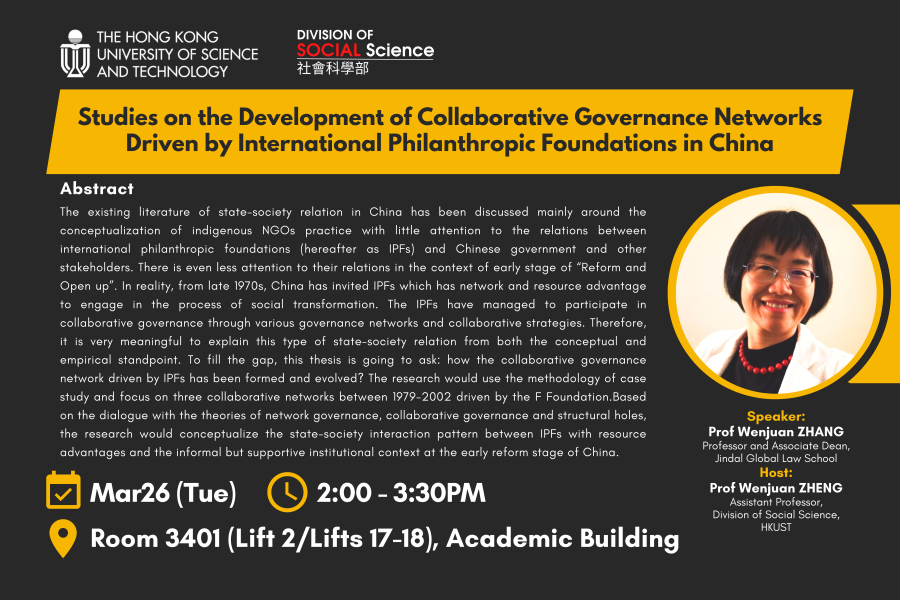The existing literature of state-society relation in China has been discussed mainly around the conceptualization of indigenous NGOs practice with little attention to the relations between international philanthropic foundations (hereafter as IPFs) and Chinese government and other stakeholders. There is even less attention to their relations in the context of early stage of “Reform and Open up”. In reality, from late 1970s, China has invited IPFs which has network and resource advantage to engage in the process of social transformation. The IPFs have managed to participate in collaborative governance through various governance networks and collaborative strategies. Therefore, it is very meaningful to explain this type of state-society relation from both the conceptual and empirical standpoint. To fill the gap, this thesis is going to ask: how the collaborative governance network driven by IPFs has been formed and evolved? The research would use the methodology of case study and focus on three collaborative networks between 1979-2002 driven by the F Foundation. Based on the dialogue with the theories of network governance, collaborative governance and structural holes, the research would conceptualize the state-society interaction pattern between IPFs with resource advantages and the informal but supportive institutional context at the early reform stage of China.
Wenjuan Zhang is Professor and Associate Dean (International Collaborations) of the Jindal Global Law School, and founding Director, Center for India-China Studies (CICS) at the O.P. Jindal Global University. She is pursuing her PhD in public administration at Shanghai Jiaotong University. She got her LLM degree from Columbia Law School in 2014 and Juris Master from Peking University Law School in 2004. She was Asia Fellow of Harvard Kennedy School in 2021-2023, Marc Haas fellowship with the Brennan Center for Justice of NYU School of Law in 2015, visiting scholar at Yale Law School in 2012 and PILNET fellowship of Columbia Law School in 2006-2007. Before moving to India, she served as Vice Director of Zhicheng Public Interest Lawyers. Her research focuses on comparative governance studies in India and China, mainly around constitutional law, lawyering for change, civil society development, and child law.
Host: Prof Wenjuan ZHENG, Assistant Professor, Division of Social Science, HKUST

